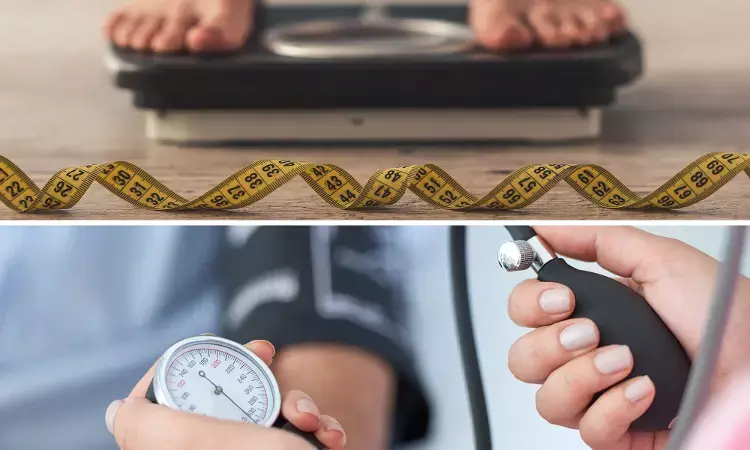- Home
- Medical news & Guidelines
- Anesthesiology
- Cardiology and CTVS
- Critical Care
- Dentistry
- Dermatology
- Diabetes and Endocrinology
- ENT
- Gastroenterology
- Medicine
- Nephrology
- Neurology
- Obstretics-Gynaecology
- Oncology
- Ophthalmology
- Orthopaedics
- Pediatrics-Neonatology
- Psychiatry
- Pulmonology
- Radiology
- Surgery
- Urology
- Laboratory Medicine
- Diet
- Nursing
- Paramedical
- Physiotherapy
- Health news
- Fact Check
- Bone Health Fact Check
- Brain Health Fact Check
- Cancer Related Fact Check
- Child Care Fact Check
- Dental and oral health fact check
- Diabetes and metabolic health fact check
- Diet and Nutrition Fact Check
- Eye and ENT Care Fact Check
- Fitness fact check
- Gut health fact check
- Heart health fact check
- Kidney health fact check
- Medical education fact check
- Men's health fact check
- Respiratory fact check
- Skin and hair care fact check
- Vaccine and Immunization fact check
- Women's health fact check
- AYUSH
- State News
- Andaman and Nicobar Islands
- Andhra Pradesh
- Arunachal Pradesh
- Assam
- Bihar
- Chandigarh
- Chattisgarh
- Dadra and Nagar Haveli
- Daman and Diu
- Delhi
- Goa
- Gujarat
- Haryana
- Himachal Pradesh
- Jammu & Kashmir
- Jharkhand
- Karnataka
- Kerala
- Ladakh
- Lakshadweep
- Madhya Pradesh
- Maharashtra
- Manipur
- Meghalaya
- Mizoram
- Nagaland
- Odisha
- Puducherry
- Punjab
- Rajasthan
- Sikkim
- Tamil Nadu
- Telangana
- Tripura
- Uttar Pradesh
- Uttrakhand
- West Bengal
- Medical Education
- Industry
Can weight loss after Laparoscopic sleeve gastrectomy ameliorate High BP ?

Laparoscopic sleeve gastrectomy (LSG) being one of the most effective surgical method results in long-term weight loss and resolution of obesity-related diseases such as hypertension. However, a recent study suggests that weight loss induced by LSG does not affect the blood pressure status after the surgery. The study findings were published in the Polish Archives of Internal Medicine on June 02, 2021.
Laparoscopic sleeve gastrectomy (LSG) is recently the most common bariatric procedure worldwide and is highly recommended by the experts as a first choice standalone procedure for high risk; morbidly obese patients. Available studies demonstrated that weight loss results in a decline in the activity of the renin-angiotensin-aldosterone system and sympathetic nervous system that may have a significant effect on reducing blood pressure. To further evaluate this, researchers of Poland conducted a study and assessed the efficacy of weight loss after LSG on the resolution or amelioration of hypertension.
It was a retrospective cohort study of medical and clinical data of 305 patients who had undergone LSG. The researchers calculated the bariatric effect of LSG by calculating the percentage of total weight loss (%TWL), percentage of excess weight loss (%EWL) and BMI loss (%EBMIL). After surgery, they categorized the blood pressure as partial or total remission of hypertension.
Key findings of the study were:
- Among 305 patients, 143 were diagnosed with hypertension preoperatively with a median hypertension duration of 7.52 years.
- The researchers noted that the patients with hypertension had a higher prevalence of coexisting diseases (type 2 diabetes, dyslipidemia and obstructive sleep apnea) than patients with normal blood pressure.
- During one year observation period, they noted that 90 patients (63%) reduced antihypertensive medications and 33 patients (23%) discontinued the therapy.
- After 1 year of surgery, they found that
◊ %TWL in control group was 32.5 %, while in hypertensive group 29.1%,
◊ %EWL was 62.9% and 54.8% and,
◊ %EBMIL 73.9% and 63% respectively.
The authors concluded, " LSG is an effective method of obesity-related hypertension treatment. However, weight loss induced by Laparoscopic sleeve gastrectomy (LSG) does not affect the blood pressure status after the surgery."
For further information:
Josepha James (Msc Cinical Research) joined Medical Dialogues as a writer in Medical News Section in 2020 . She covers news in several medical specialties from both national and international journals and associations. She has completed Bachelors in Physician Assistant and then pursued Masters in Clinical Research. She can be contacted at editorial@medicaldialogues.in.
Dr Kamal Kant Kohli-MBBS, DTCD- a chest specialist with more than 30 years of practice and a flair for writing clinical articles, Dr Kamal Kant Kohli joined Medical Dialogues as a Chief Editor of Medical News. Besides writing articles, as an editor, he proofreads and verifies all the medical content published on Medical Dialogues including those coming from journals, studies,medical conferences,guidelines etc. Email: drkohli@medicaldialogues.in. Contact no. 011-43720751


